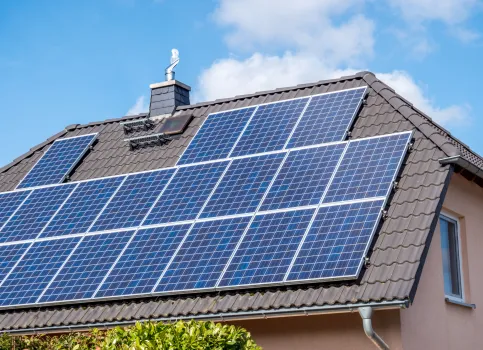
How to Choose the Right Solar Panels
Efficiency ratings for each component. Installers will choose the options that offer the greatest savings potential for their residential solar installations. This depends on market conditions and availability. To make an informed choice, you should read this guide. It will help you navigate the complexities of choosing the right solar panels for your home.
Factors and Criteria to Consider
Knowing what to look out for is the first step in understanding which equipment to buy. Each home has its own needs, and each homeowner will have different energy goals.
Solar Panel Types
Solar panels come in three different types. It is important to know the differences.
- Monocrystalline – These panels are made from silicon that is cut to shape for each cell. They are very efficient (20%+) and work best on small surfaces like roofs.
- Polycrystalline – These panels are another option in photovoltaics. They have a lower cost per panel but a lower efficiency (14-16%). These panels are larger and often used in commercial areas.
- Thin-Film – These solar panels are more innovative, and the technology is still developing. Their efficiency is low (7-18%), but they are fast and easy to make. Many researchers believe thin-film solar panels have a bright future.
Your budget and aesthetic preferences will determine the best choice for you. Monocrystalline panels are most commonly used by homeowners due to their high-efficiency rates.
Monocrystalline panels may be more expensive than polycrystalline ones, but they are still the best choice for residential solar installation. Find out more about the types of solar panels.
Efficiency
The efficiency of a solar panel is expressed as a percentage. It represents how much sunlight it can convert into electricity. The efficiency of solar panels is affected by many external factors, including weather, temperature, and angle. Each of these factors affects the amount of electricity produced. The more efficient the system, the greater the power produced in the same space and time.
The efficiency rate can vary depending on both the type of panel and the manufacturer. Monocrystalline high-efficiency panels have a rate of 20% or more, which is important to know if you are installing in a small space.
Try to balance the cost and efficiency when choosing the right solar panel for your home. Although higher-efficiency panels produce more electricity, they can be more expensive.
Inverters
Inverters are essential for solar panels to work. Solar panels generate energy as direct currents (DC), but household appliances need alternating currents (AC). Inverters convert DC into AC before sending energy to household appliances.
This post was written by Daniel Massaad, owner and expert solar technician at Energy Solutions Direct! ESD is the top choice for Residential Solar Installation Lakeland FL! Our licensed and certified contractors are masters of their craft; with years of experience servicing the great Tampa Bay area and beyond, the choice is simple. ESD excels at offering you the best in solar value!


